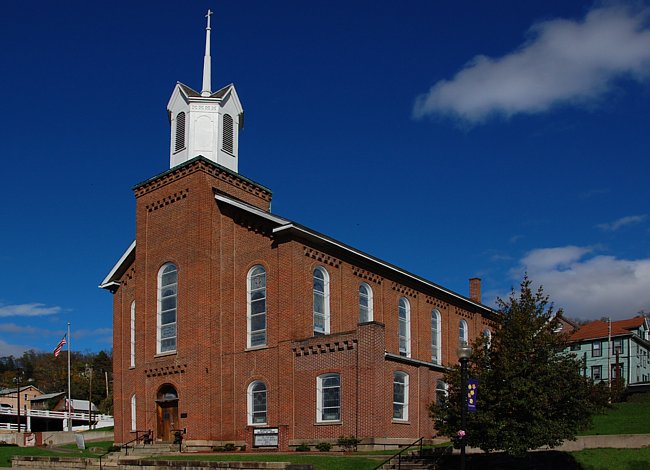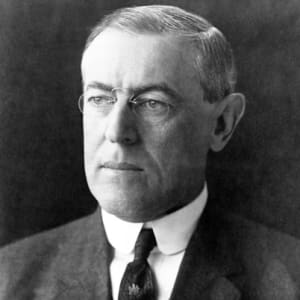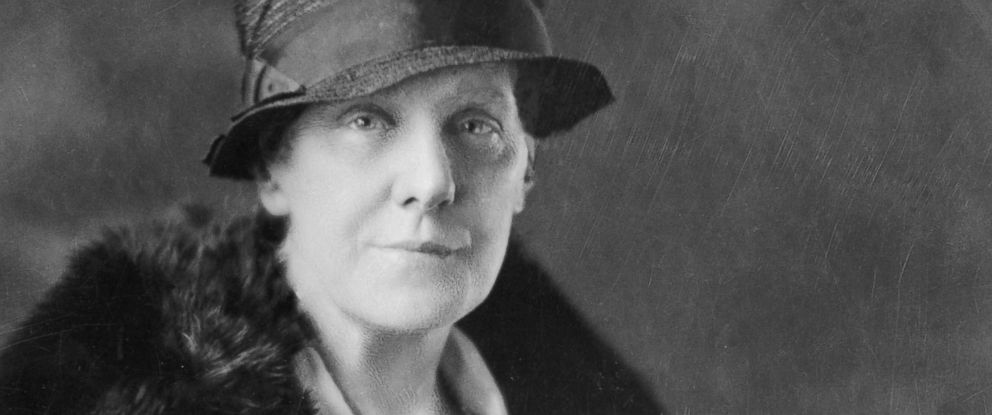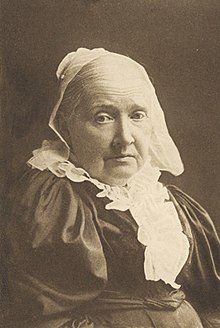Why celebrate Mothers? A Historical background and some reflections

In Summary: It dates back to ancient Egypt where celebration of Isis, mother of the pharaohs was an annual ritual. In Ancient Greece and Asia Minor, Rhea was celebrated as the mother of the gods. The Romans celebrated Cybele as the “Magna Mater,” or Mother’s Day. During the 16th Century, Britain began celebrating “Mothering Sunday” on the fourth Sunday of Lent, three weeks before Easter. In America, Mother’s Day had its origins in idealism--love, humanness, friendship, peace, and compassion during the Civil War. President Woodrow Wilson proclaimed the celebration of Mother’s Day every second Sunday of May in 1914. The day has since become an international expression of gratitude and appreciation of motherhood. Throughout history, the day was, and still is, characterized by mothers receiving gifts including flowers, cakes, eating with her, and doing whatever is possible to celebrate her. In the United States of America, however, the evolution of Mother’s Day was not without controversy. The most lethal enemy encountered by the idealistic founders of Mother’s Day was the commercialism injected into the day. Indeed, as the celebration of Mother’s Day was observed annually in the USA, a lawsuit was filed seeking to take the commercialism out of Mother’s Day. Little wonder that the great commentator and comedian of the time Will Rodgers once observed: “while florists also have mothers, they’ve got more flowers than they got mothers!” In two successive articles, released on May 4 and 11, 2007 (now a combo here), Edwin Cooney offers a historical background to Mother’s Day celebrations and some perspectives on motherhood as a God-given attribute uniquely found in mothers. From the outset, Cooney declares, “she is Mom because she’s the flower of God’s greatest creation.” To all Moms out there, we hope and pray that you had a wonderful Mother’s Day!

New York, USA-- It’s a day after you know! No, I’m not talking about either any major league baseball game or even the Kentucky Derby (the derby ended controversially last week) — it’s Mother’s Day that’s front and center since yesterday and going further this week. With almost any phenomenon I think or write about, my first curiosity is its history—even more than its significance. So, I went about some research on the history of Mother’s Day and discovered--not at all to my surprise—both its history and significance.
I knew before hitting the computer keys that Mother’s Day, as we know it, was the brainchild of Anna Jarvis of Grafton, West Virginia. It was celebrated there for the first time on Sunday, May 10th, 1908 at Andrews Methodist Episcopal Church which was designated as a shrine to Mother’s Day in 1962.

I believe I’d also read that it was widely celebrated across America by 1912 and that President Woodrow Wilson had made it official with a presidential proclamation by 1914.

But the celebration of Mother’s Day goes back to ancient Egypt and was celebrated there in honor of Isis—goddess of the pharaohs. According to ancient Egyptian mythology, the goddess Isis’s brother-husband was slain by her other brother, the jealous Seth. After his body had been cut into thirteen pieces, the goddess reassembled him and was thus able to impregnate herself from his body. She gave birth to Horace whom she was forced to hide from his jealous and deadly uncle Seth. Once he was grown, Horace confronted and slew Seth and was able to reign, as a god, over a united Egypt. Thus, Isis was celebrated as the mother of the pharaohs. In ancient Greece as well as throughout Asia Minor, Rhea is celebrated as the mother of the gods. In Rome, Cybele whose myth stems from the Greek goddess Rhea, according to one of the sources, was central to the celebration of “Magna Mater,” or Mother’s Day. However, another source asserts that “Matronalia,” celebrated the goddess Juno with mothers receiving gifts in honor of the day. What both sources do agree on is that in Rome, Mother’s Day was celebrated around the vernal equinox.
Britain began celebrating “Mothering Sunday” on the fourth Sunday of Lent—three weeks before Easter--as far back as the 16th century. Mothering Sunday was taken so seriously by the British that even those bound to apprentice servitude were permitted by their masters to go home to mama every year to celebrate Mothering Sunday. Strange as that may seem, supposedly even British apprentice masters had mothers too, but there may have been another motive for the celebration of motherhood during the darker days of British history. Celebrated as it was on the fourth Sunday of the Lenten season, it was a break in the season. Those who served mother, sharing flowers and cakes with her could feast and drink all day to their heart’s content. Goodness! Even old Scrooge had to go for that chance. After all, as a good Englishman he surely enjoyed his pint!

In America, Mother’s Day had its origins in idealism. Anna Reeves Jarvis, the mother of Anna M. Jarvis (the actual founder of America’s modern Mother’s Day), began celebrating Mother’s Working Day from the Andrews Methodist Episcopal Church where she taught Sunday school. During the Civil War, Mrs. Jarvis worked not only to improve sanitary living conditions in what by then had become West Virginia but also to reunite families whose affection had been injured or even severed due to that divisive conflict. After the war, the author of “The Battle Hymn of the Republic”, Julia Ward Howe, so despised war that she began working with Mrs. Jarvis for the celebration of a national Mother’s Day. The more prominent Mrs. Howe began using her influence and even money for the celebration of Mother’s Day in some of America’s larger cities such as Boston, New York, and Philadelphia, as a day proclaiming peace among people and nations of the earth. In 1870, with the memory and wounds of the Civil War so fresh and the outbreak of the Franco-Prussian War in Europe a stark reality, Julia Ward How issued the following declaration:

Arise, then, women of this day! Arise all women who have hearts, Whether your baptism is that of water or of tears Say firmly: We will not have great questions decided by irrelevant agencies; Our husbands shall not come to us reeking of carnage, For caresses and applause. Our sons shall not be taken from us to unlearn All that we have been able to teach them of charity, mercy, and patience. We women of one country Will be too tender of those of another country To allow our sons to be trained to injure theirs." From the bosom of the devastated earth, a voice goes up with Our own. It says, "Disarm, Disarm!" The sword of murder is not the balance of justice! Blood does not wipe out dishonor Nor violence indicate possession. As men have often forsaken the plow and the anvil at the summons of war. Let women now leave all that may be left of home For a great and earnest day of counsel. Let them meet first, as women, to bewail and commemorate the dead. Let them then solemnly take counsel with each other as to the means Whereby the great human family can live in peace, Each bearing after his own time the sacred impress, not of Caesar, But of God. In the name of womanhood and humanity, I earnestly ask That a general congress of women without limit of nationality May be appointed and held at some place deemed most convenient And at the earliest period consistent with its objects To promote the alliance of the different nationalities, The amicable settlement of international questions. The great and general interests of peace.

Consistent with her declaration, Mrs. Howe backed her words for some years with her money thus funding Mother’s Day in some of the larger cities in the USA. Eventually, the funding was spent and thus Julia Ward Howe’s Mother’s Day was history even in her adopted home city of Boston, Massachusetts. By 1908, the daughter of Anna Reeves Jarvis, Anna M. Jarvis, got her mother’s old church to take up the celebration of Mother’s Day. Each congregant would be given two carnations—one white in commemoration of women by then dead and one red or pink for those living. The idea spread and by 1912, forty-five of the forty-eight states were celebrating Mother’s Day. By the mid-1920s however, Ms. Jarvis began to revolt against the increasing commercialization of Mother’s Day by America’s florists. She began to sue to stop such commercialization of what she considered to be a sacred celebration of love and idealism. She lost, of course, and during the 1930’s she had to be arrested for disrupting a Mother’s Day celebration by the Mothers of World War2 Veterans. Ms. Jarvis died in 1948 in a nursing home -- bitter, blind and childless. America, however, almost in defiance of her, still celebrates. Thus we have Mother’s Day which we celebrate in the way we have freely chosen to celebrate it. As to what I think about it all having gathered the above information, at this writing, I’m not quite sure. I will, therefore, leave the thinking to you!
After highlighting the history of Mother's Day, I now offer my perspective on Mother's Day. From the outset, I should declare: she is Mom because she’s the flower of God’s greatest creation! Earlier, I concluded my sketchy review of the celebration of Motherhood throughout history by saying that I wasn’t sure what it all meant. After all, my recitation concluded with the founder of Mother’s Day bringing suit and demonstrating for florists to stop using the holiday as a money-making vehicle. Now, after hearing and reading countless ads for everyone to provide mother with candy, flowers, jewelry, household appliances, teddy bears, and so much more -- for the lowest reasonable price, of course -- it’s not hard to be at least slightly sympathetic to the late Anna M. Jarvis’s anxiety as to what she had wrought. After all, Anna was under the erroneous illusion that one could adequately express one’s deepest feelings of respect, tenderness and love for Mama without spending a dime—or even a penny. Come to think of it though, what did Anna Jarvis know anyway: very few women worked for a dollar during most of her lifetime! How could she be expected to realize the value of a buck?

Various visions of Mom come to us amidst the advertisements and the heartfelt appeals to our sentiments regarding Mom. The New York Lottery put out a radio ad that goes something like this: Mom: “Oh, Son! Thank you for that card—-it was so lovely.” Son: “It was a lottery card, Mom.” Mom: “Yes, I know, dear, and there was a place on it that I was supposed to scratch, but I didn’t want to. But your father said that I should, so I did and I won $250,000.” Son: “Mom, you won that much money? That’s wonderful.” Mom: “Money has nothing to do with it because, in order to win any money, I’d have to turn the card in and I’d never turn a card sent by you in. Remember the first Mother’s Day card you ever sent me? It was made of macaroni and rubber bands. It was beautiful and I still have it. So is this one and I’m keeping it.” Son: “But, Mom, this one has money in it.” Mom: “Yes, Son, and it’s beautiful and that’s why I’m keeping it—yes, it’s just beautiful—so is the envelope!”

Thus, we have a vision of Mom as one whose maternal instinct is so dominant that despite her son’s (and, supposedly, her husband’s) incredulity, she’ll keep something given to her by her precious offspring rather than turn it in for a larger and more practical reward. Some would wonder if there might be a mom in America who could really be that stupid. It’s hard to imagine that anyone exists, Mom or not a Mom, who would be so wonderfully and dreamily principled. Yet there is a doubt in the corner of our minds --because of our experiences with some of the more saintly among us -- and that’s why an advert of this type works. Mom, after all, is so sainted around this time of year by the seriously poetic that such a mom as portrayed above and below might even exist.

A few days ago a friend sent me the following which she thinks is beautiful and it’s hard to argue the contrary. The young mother set her foot on the path of life. "Is this the long way?" she asked. And the guide said: "Yes and the way are hard. And you will be old before you reach the end of it. But the end will be better than the beginning." But the young mother was happy, and she would not believe that anything could be better than these years. So she played with her children, and gathered flowers for them along the way, and bathed them in the clear streams, and the sun shone on them and the young Mother cried, "Nothing will ever be lovelier than this." Then the night came, and the storm and the path was dark, and the children shook with fear and cold, and the mother drew them close and covered them with her mantle, and the children said, "Mother, we are not afraid, for you are near, and no harm can come." And the morning came, and there was a hill ahead, and the children climbed and grew weary, and the mother was weary. But at all times she said to the children, "A little patience and we are there." So the children climbed, and when they reached the top they said, "Mother, we would not have done it without you." And the mother, when she lay down at night, looked up at the stars and said, "This is a better day than the last, for my children have learned fortitude in the face of hardness. Yesterday I gave them courage. Today, I've given them strength." And the next day came strange clouds which darkened the earth, clouds of war and hate and evil, and the children groped and stumbled, and the mother said: "Look up. Lift your eyes to the light.” And the children looked and saw above the clouds an everlasting glory, and it guided them beyond the darkness. And that night the Mother said, “This is the best day of all, for I have shown my children God." And the days went on, and the weeks and the months and the years, and the mother grew old and she was little and bent. But her children were tall and strong and walked with courage. And when the way was rough, they lifted her, for she was as light as a feather; and at last they came to a hill, and beyond they could see a shining road and golden gates flung wide. And mother said, "I have reached the end of my journey. And now I know the end is better than the beginning, for my children can walk alone, and their children after them." And the children said, "You will always walk with us, Mother, even when you have gone through the gates." And they stood and watched her as she went on alone, and the gates closed after her. And they said: "We cannot see her but she is with us still.

Mothers attend their premature babies at the Pumwani Maternity Hospital in Nairobi, Kenya.
A Mother like ours is more than a memory. She is a living presence......." Your Mother is always with you.... She's the whisper of the leaves as you walk down the street; she's the smell of bleach in your freshly laundered socks; she's the cool hand on your brow when you're not well. Your Mother lives inside your laughter. And she's crystallized in every teardrop. She's the place you came from, your first home; and she's the map you follow with every step you take. She's your first love and your first heartbreak, and nothing on earth can separate you." Not time, not space... not even death! That deeper view of Mom possesses powerful eloquence which places every mother on the purist and loftiest pedestal.

Your experience may be very different from mine, but I don’t know many moms who would really identify with this last testimony, any more than those moms who could live up to the New York Lottery’s characterization of “dearest Mom.” Moms are special, of course, because they’ve been granted a God-given power—which no man possesses—that of both giving and nurturing life. A male doctor can sustain and even strengthen life, but only a Mom can give life. How able she is to sustain life once it’s given depends upon forces way beyond her control.

What the above tribute to Mom almost entirely ignores is Mom’s very humanity. Further, it assumes that all Moms are blessed with obedient children willing at all times to follow Mom. It takes no account of the tens of thousands of moms who, with broken hearts, find that their children have chosen unhappy paths of existence. Nor are all ends better than the beginning. Nevertheless, in its own perspective, the above homage to Motherhood is worthy because it does express the all-encompassing power that uninhibited mother love can bring when a mother’s children are willing to receive and value her love. To me, Mom is a very special person for all that is stated above. However, it seems to me that the moms who are truly the best of all are the moms who grapple with and strive to overcome their own imperfections. Also, I can’t resist the following observation: The loveliest Mom is the Mom who sets standards but, because she’s struggled through her own imperfections, still loves you despite yours.
About the Author: Mr. Edwin Cooney is a student of history, a writer, and a fan of the Yankees! Happily married with two adult sons, Mr. Cooney, popularly known by a section of his friends as “Sir Edwin”, he pens a weekly column he sends to his subscribed readers every Monday of the week. Blind, confident, and independent, Mr. Cooney lives in New York City with his wife.


